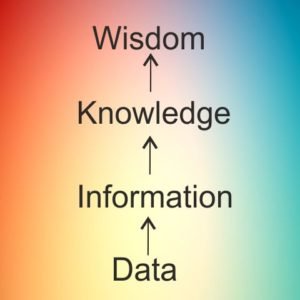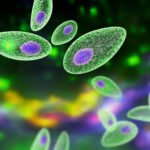If you want to know about knowledge so First, you would know what is knowledge? In this article we share all about of knowledge.
Knowledge is information and understanding about a subject which a person has, or which all people have.
What is Knowledge?
Knowledge is the power/capacity for effective action. The organised data are information. The processed information in the actionable form is referred to as knowledge. The knowledge becomes wisdom when it is used for a good cause of a large number of people.
According to Bates, “Knowledge is information given meaning and integrated with other contents of understanding”
Dixon defined that what is Knowledge, “Knowledge is the meaningful links people make in their minds between information and its application in action in a specific setting”
According to Smith & Webster, “Knowledge is the accumulation of everything an organisation knows and uses in the carrying out of its business”

Type of Knowledge
There are many two types of Knowledge
- Tactic Knowledge
- Explicit Knowledge
Tactic Knowledge is the potential of an individual and which needs to be mined or exploited by means of face-to-face discussions, interviews,etc., Tactic knowledge can be shared and exchanged.
Explicit Knowledge is formal knowledge which is available in books, magazines, reports, audio tapes, video tapes, CDs, etc.
Individual Knowledge Conversion process
Individual knowledge conversion takes place between tactic knowledge and explicit knowledge.
According to Nonaka and Tackeuchi knowledge conversion is based on four modes:
Mode 1: Socialisation
Knowledge is converted from tactic to tactic through sharing and exchanging experiences and technical skills.
Mode 2: Externalisation
Tactic Knowledge converted into explicit concepts like analogies, models, generalizations etc.
Mode 3: Combination
Knowledge is converted from explicit to explicit by reconfiguration of existing information by infusing modifications, additions, deletions, sorting, combinations and categorizations. This effort results in the creation of new or improved knowledge.
Mode 4: Internalization
This is related learning by reading, listening, and doing. This stage helos the individual to conceptualize the knowledge from his own perspective though the interaction of his cognition. Thus, the individual internalizes the explicit knowledge and converts it into tactic knowledge.
Organisational Knowledge Creation Process
The models discussed in the individual knowledge conversion interact with the another dimension i.e., time and produce five phase of organisational knowledge creation.
These five phases include:
Phase 1: Sharing tactic Knowledge
Interaction among individual employees in the form of meetings, discussion, and conflict over ideas provides for exchange and sharing of tactic knowledge.
Thus, tactic knowledge held by most of the employees become the organisational knowledge.
Phase 2: Creating concepts
The cognitive process of each employee crystallizes the shared tactic knowledge into models, concepts and words.
Phase 3: Justifying Concepts
The new concepts generated by individuals need to be tested in practice and justified for further validity and practical implementation. This stage justifies whether the new concepts/ideas are worthwhile for the organisation and the society.
Phase 4: Building an Arch type
The tested concepts are converted into tangible or concerts or prototype operating mechanism.
Phase 5: Cross-leveling Knowledge
Knowledge created, developed and modeled is further cycled by another organisation or department. Other departments and organisations should have the autonomy to develop the knowledge further for the benefit of an organisation, society and humanity at large.
Knowledge Creation Process
The knowledge conversion process, both individual and organisational can be synchronized in the following stages:-
Stage 1: Sharing of the ideas/opinions through tactic to tactic conversion.
Stage 2: Developing new knowledge by tactic-tactic and cognitive interaction of a team of employees.
Stage 3: Creating concepts and justifying them by tactic-explicit conversion.
Stage 4: Securing new and existing knowledge.
Stage 5: Building an archetype.
Stage 6: Distribution of archetype models.
Stage 7: Combine available knowledge.
Stage 8: Cross-leveling knowledge for further explicit-tactic-explicit conversion.
Characteristics of knowledge
Several characteristics of knowledge have been pointed below:
Point 1: Knowledge is contextual and it can be re-used
Point 2: Benefits of knowledge obtained only if it is applied
Point 3: The values of knowledge may change over time
Point 4: Knowledge has to be renewed or maintained
Point 5: It can be difficult to transfer, capture and distribute knowledge
Point 6: It is developed through learning processes
Point 7: Depends on memory, past experience, expertise, knowledge transfer mechanisms, opportunities
Point 8: Facilitates effectiveness and ‘sense-making’
Point 9: Knowledge enables higher learning
Point 10: Knowledge creation and utilization is enhanced with technology.
At last words, we can say that Knowledge is power of life and its develop confidence level in a person. If any asked what is knowledge then we can say that Knowledge is a familiarity, awareness, or understanding of someone or something, such as facts, information, descriptions, or skills, which is acquired through experience or education by perceiving, discovering, or learning.
Related Topic :-
For Contact with us you can like our Facebook page to and Subscribe to the YouTube channel.













